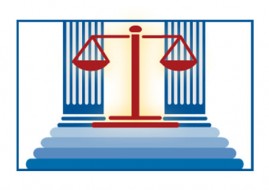Second Circuit Rejects Privilege Claim for Conversation with Investment Banker
By Roy Simon [Originally published in NYPRR April 1999]
Suppose a lawyer is structuring a major acquisition for a corporate client and finds it necessary to consult with an investment banker to grasp the details of the transaction. The lawyer’s sole purpose in communicating with the investment banker is to provide better legal advice to the client. Is the conversation between the lawyer and the investment banker privileged? More generally, in a transactional context, are conversations between lawyers and outside consultants protected by the attorney-client privilege? A new Second Circuit case, United States v. Ackert [No. 97-6293 (2d Cir., 2/26/1999)], suggests they are not.
In 1989, a Goldman, Sachs investment banker named David Ackert met with Paramount executives to propose a transaction designed to reduce Paramount’s tax liability. After the initial meeting, one of Paramount’s in-house lawyers, Eugene Meyers, contacted Ackert to learn more details about the proposed transaction and its tax consequences “so that he could advise his client, Paramount, about the legal and financial implications of the transaction.” In a 1996 audit, the IRS issued a summons to Ackert seeking his testimony about the 1989 proposal, but Paramount asserted the attorney-client privilege regarding all conversations between Ackert and Meyers or between Ackert and others in the presence of Meyers. The magistrate judge agreed with Paramount, indicating that the conversations would be privileged if Meyers collected information from Ackert in order to give legal advice to Paramount.
Paramount Cites Kovel Decision
On appeal by the U.S., Paramount cited Judge Friendly’s opinion in United States v. Kovel [296 F.2d 918 (2d Cir.1961)]. Kovel held that the privilege can protect communications between a client’s accountant and his attorney when the accountant’s role is to clarify communications between attorney and client. “If a client and attorney speak different languages, an interpreter could help the attorney understand the client’s communications without destroying the privilege.” Here, Meyers asked Ackert for details about the investment for the “sole purpose of providing legal advice to Paramount.” Paramount said that “it was impossible for Mr. Meyers to advise Paramount without these further contacts with Mr. Ackert, because he could not otherwise fully define the factual, and therefore legal, nature of the proposal.”
The Second Circuit held that Paramount’s arguments were insufficient. The purpose of the privilege is to encourage clients to make full disclosure to their attorneys. The privilege therefore protects “communications between a client and an attorney, not communications that prove important to an attorney’s legal advice to a client.” In other words, “a communication between an attorney and a third party does not become shielded by the attorney-client privilege solely because the communication proves important to the attorney’s ability to represent the client.” Moreover, because Ackert was not acting as a translator or interpreter of client communications, “the principle of Kovel does not shield his discussions with Meyers.” Paramount’s privilege claims therefore fail unless Paramount can demonstrate other circumstances bringing particular communications with Ackert inside the scope of Paramount’s privilege
The Second Circuit cited little authority for its holding. This is disappointing because many other courts have considered similar questions in recent years. [In re Consolidated Litigation Concerning International Harvester’s Disposition of Wisconsin Steel, 666 F.Supp. 1148 (N.D. Ill. 1987).] That case held that a client waived the privilege by disclosing to an investment banker some of its lawyer’s advice to the client. The Second Circuit might have cited that case in support of its decision.
Court Should Revisit Ruling
On the other hand, the Eighth Circuit held in In re Bieter Co. [16 F.3d 929 (8th Cir. 1994)], that a lawyer’s communications with a consultant on real estate matters did not cause waiver of the privilege because the consultant was “a representative of the client” within the meaning of proposed Rule 503 of the Federal Rules of Evidence. Similarly, in McCaugherty v. Siffermann [132 F.R.D. 234 (N.D. Cal. 1990)], the court held that under the Supreme Court’s analysis in the seminal case of Upjohn Co. v. United States [449 U.S. 383 (1981)], the privilege protected communications between the client’s lawyers and two consultants hired, by the client, just as it would protect communications between the lawyers and the client’s employees. The court could also have studied an article by the Dean of N.Y.U. Law which says that “at times there will be potential information-givers who are not employees of the corporation but who are nonetheless meaningfully associated with the corporation in a way that makes it appropriate to consider them ‘insiders’ for purposes of the privilege.” [John E. Sexton, “A Post-Upjohn Consideration of the Corporate Attorney-Client Privilege,” 57 N.Y.U.L.Rev. 443, 498 (1982).]
Perhaps these authorities are distinguishable because in Ackert the client (Paramount) never hired Goldman, Sachs as its investment banker. We hope that the Second Circuit will revisit the larger issue of protecting communications with outside consultants in a future case.
DISCLAIMER: This article provides general coverage of its subject area and is presented to the reader for informational purposes only with the understanding that the laws governing legal ethics and professional responsibility are always changing. The information in this article is not a substitute for legal advice and may not be suitable in a particular situation. Consult your attorney for legal advice. New York Legal Ethics Reporter provides this article with the understanding that neither New York Legal Ethics Reporter LLC, nor Frankfurt Kurnit Klein & Selz, nor Hofstra University, nor their representatives, nor any of the authors are engaged herein in rendering legal advice. New York Legal Ethics Reporter LLC, Frankfurt Kurnit Klein & Selz, Hofstra University, their representatives, and the authors shall not be liable for any damages resulting from any error, inaccuracy, or omission.
Related Posts
« Do I Have to Keep These Old Files? Avoid Conflicts of Interest When Hiring Contract Lawyers »













